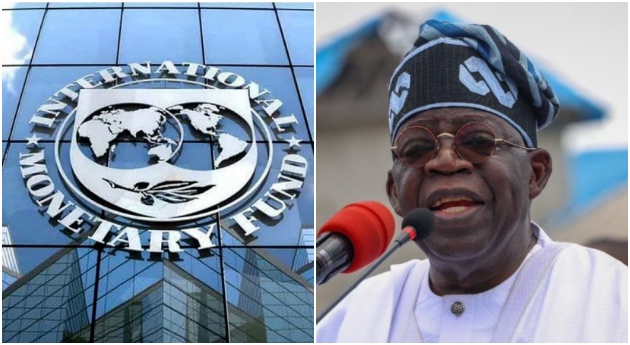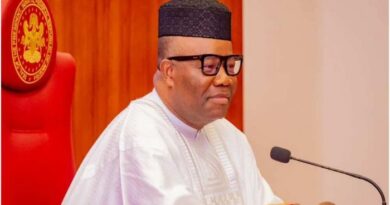How Nigeria, others can escape debt crisis – IMF
The International Monetary Fund (IMF) has suggested measures for sub-Saharan Africa to avoid a debt crisis.
The advice coincides with an appeal by the African Network for Environment and Economic Justice (ANEEJ) to creditor nations and institutions to cancel Nigeria’s huge debt burden.
In a report released on Tuesday, September 26, the IMF said the average debt ratio in sub-Saharan Africa had almost doubled in just a decade, rising from 30 per cent of gross domestic product (GDP) at the end of 2013 to nearly 60 per cent of GDP by the end of 2022.
Not only has the debt risen, but repaying this debt has also become much costlier, the Britton Wood financial institution said.
It noted that the problem had been that the region’s ratio of interest payments to revenue, a key metric to assess debt servicing capacity and predict the risk of a fiscal crisis, had more than doubled since the early 2010s and was close to four times the ratio in advanced economies at the time it released the report.
“As of 2022, more than half of the low-income countries in sub-Saharan Africa were assessed by the IMF to be at high risk or already in debt distress.
“These trends have sparked concerns of a looming debt crisis in the region,” IMF stressed.
In proffering solutions, the IMF identified five policy actions African nations would adopt to preserve public finances’ sustainability while achieving the region’s development goals.
The policies include setting a course to re-anchor their fiscal policy through a credible medium-term strategy.
According to the IMF, this will help sub-Saharan Africa focus their fiscal policy away from excessive short-term goals and be guided by a medium-term strategy.
“A more strategic approach to fiscal policy would be preferable by setting explicit debt targets that integrate key policy trade-offs between debt sustainability and development objectives, rather than focusing narrowly on short-term fiscal deficits,” it explained.
The IMF also suggested that the region undertake fiscal adjustment to bring debt back to a safer level.
It means most countries in Sub-Saharan Africa must reduce their fiscal deficits to about two to three per cent of their GDP in the coming years, suggested the organisation.
A third approach is mobilising more domestic revenue, as most sub-Saharan African countries rely excessively on expenditure cuts to reduce their fiscal deficits.
While acknowledging that this might be required in some circumstances, the IMF said revenue measures, like eliminating tax exemptions or digitalising filing and payment systems, should play a more significant role.
“Mobilising domestic revenue is less detrimental to growth in countries where initial tax levels are low, whereas the cost associated with reducing expenditures is particularly high given Africa’s large development needs,” it explained.
The IMF further suggested that the sub-Saharan countries strengthen their budget institutions to improve the implementation of fiscal plans.
“Policy changes are more likely to yield tangible results if fiscal institutions are strong and efficient. On the expenditure side, well-designed plans too often yield disappointing results due to budgetary slippages or an unforeseen materialisation of fiscal risks.
“Adopting a medium-term fiscal framework, putting in place tools to better assess and manage fiscal risks, and enhancing controls over government expenditure during the budget implementation phase is key to avoiding such pitfalls,” it explained.
The IMF stressed the imperative of considering the implications of policies on the population.
“The sustainability of a new fiscal strategy also depends on the government’s ability to secure public support by linking the policy measures to longer-term benefits. Public acceptance should be a central consideration in policy design—for instance, by sequencing reforms carefully and introducing compensatory measures,” it said.
Meanwhile, the Executive Director of ANEEJ, David Ugolor, had on Tuesday, September 26, urged the World Bank, IMF, China and the African Development Bank (AfDB) to cancel Nigeria and other African countries’ debt obligations.
Ugolor made the plea at a two-day National Conference on ‘Debt and Development’ organised by ANEEJ in conjunction with the African Forum and Network on Debt and Development, AFRODAD, Bill & Melinda Gates Foundation, Open Society Initiative for West Africa, OSIWA, with the theme ‘Repositioning Nigeria For A Debt-Free Africa’
-Vanguard reported.




